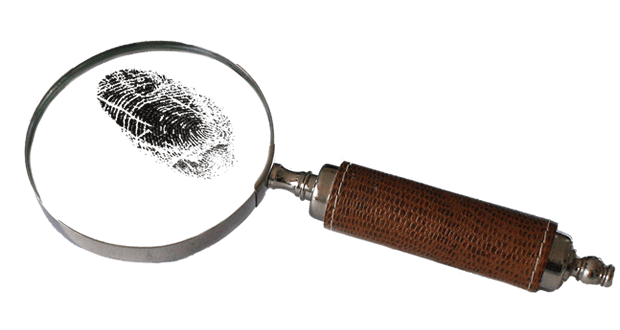Read about scientific evidence that hypnosis works to resolve a wide range of complaints and problems quickly and expertly.
Evidence 1 – Pain Management
- A study conducted at a hospital in Switzerland showed that hypnosis is an effective treatment for pain. The study analyzed 40 intensive care patients whose pain was measured using the Visual Analog Scale (VAS).
These patients were also on prescribed opioid medications. Physicians were able to gradually reduce the dose of these medications in the patients who continued with hypnotherapy sessions because they reported less pain than the control patients who did not use hypnotherapy.
This study also found that the patients who proceeded with hypnotherapy experienced less anxiety, required fewer skin grafts, and had overall lower hospital costs (Berger, M. M., et al, 2010).Berger, M. M., Davadant, M., Marin, C., Wasserfallen, J. B., Pinget, C., Maravic, P., … & Chiolero, R. L. (2010). Impact of a pain protocol including hypnosis in major burns. Burns, 36(5), 639-646.
- A study by Daniel P. Kohen in the International Journal of Clinical and Experimental Hypnosis showed that self-hypnosis is an effective treatment for recurrent headaches. Moreover, this study found that the pain-relieving benefits of self-hypnosis persisted for many years after the subjects received self-hypnosis training. Subjects of this study also reported that self-hypnosis improved other areas of their lives, including stress reduction and an overall positive attitude (Kohen, 2010).
Kohen, D. P. (2010). Long-term follow-up of self-hypnosis training for recurrent headaches: what the children say. Intl. Journal of Clinical and Experimental Hypnosis, 58(4), 417-432.
Evidence 2 – Quitting smoking
- Hypnosis has been shown to be effective for smoking cessation. A study conducted by the American Lung Association of Ohio showed positive results from a single hypnotherapy session. Over 2,800 smokers participated in this study. Participants were contacted one month after the hypnotherapy session and asked to report their progress. Over 20% of the participants reported not smoking at all in the month following the hypnotherapy session (Ahijevych, K., et al., 2008).
Ahijevych, K., Yerardl, R., & Nedilsky, N. (2000). Descriptive outcomes of the American Lung Association of Ohio hypnotherapy smoking cessation program. International Journal of Clinical and Experimental Hypnosis, 48(4), 374-387.
In a study conducted at the San Francisco Veterans Affairs Medical Center, hypnosis was found to be an effective therapy for smoking cessation. The subjects in this study participated in either hypnosis or behavioral counseling in order to quit smoking. The participants were then interviewed six and twelve months after their respective treatments. The study showed that the hypnosis participants experienced a significantly greater success rate than the behavioral counseling participants (Carmody, T., et al., 2007).
Carmody, T. P., Duncan, C., Simon, J. A., Solkowitz, S., Huggins, J., Lee, S., & Delucchi, K. (2008). Hypnosis for smoking cessation: a randomized trial. Nicotine & tobacco research, 10(5), 811-818.
Evidence 3 – Alcohol Addiction
- Hypnosis has been found to be effective in the treatment of alcohol abuse. In a study conducted at the Hospital of the West Indies, patients were asked to complete an intensive hypnotherapy program aimed at stopping their alcohol abuse. In this study, 77% of participants had stopped drinking and, when contacted one year later, were still able to abstain from drinking (Barnaby, L., & Gibson, R.C., 2008).
Barnaby, L., & Gibson, R. C. (2008). Factors affecting completion of a 28-day inpatient substance abuse treatment program at the University Hospital of the West Indies. West Indian Medical Journal, 57(4), 364-368.
Evidence 4 – Self-Esteem
- The use of hypnosis has been found to be successful at improving self-esteem. A study conducted at the University of Stellenbosch in South Africa sought to determine whether hypnosis was an effective tool for improving students’ self-esteem. The results of the study showed that the use of hypnosis caused a significant improvement in the self-esteem of the students who participated in the study (De Vos, H.M., & Louw, D.A., 2009)
De Vos, H. M., & Louw, D. A. (2009). Hypnosis-induced mental training programs as a strategy to improve the self-concept of students. Higher Education, 57(2), 141-154.
Evidence 5 – Blood Pressure
- A 2011 study showed that hypnosis was an effective treatment for lowering high blood pressure. This study involved non-medicated patients, patients on hypertension medication, and patients who used only hypnosis to treat their symptoms. Of all of these participants, non-medicated patients showed no improvement, patients on hypertension medication showed improved symptoms, and patients who were administered hypnosis showed complete elimination of symptoms. These patients were taught self-hypnosis techniques in order to continue these positive effects at home (Herdis, L., et.al., 2011).
Deabler, H. L., Fidel, E., Dillenkoffer, R. L., & Elder, S. T. (1973). The use of relaxation and hypnosis in lowering high blood pressure. American Journal of Clinical Hypnosis, 16(2), 75-83.
Evidence 6 – Asthma
- Hypnosis has also been shown to be effective in the treatment of asthma. While normally treated with prescription pharmaceuticals, many asthma sufferers seek a more cost-effective, safer alternative. A study conducted by the Davis, California School of Medicine showed hypnosis to be an effective alternative to pharmaceuticals in the treatment of asthma. The study also mentions that previous studies have shown consistently that hypnosis produces positive effects in asthma patients, and that continuing self-hypnosis is effective in maintaining asthma symptom relief (Hackman, R.M., et.al., 2000).
Hackman, R. M., Stern, J. S., & Gershwin, M. E. (2000). Hypnosis and asthma: a critical review. Journal of Asthma, 37(1), 1-15.
Evidence 7 – Depression
- The number of studies on hypnosis as an effective treatment for clinical depression is growing. Empirical research has indicated that using hypnosis has led to improvement of symptoms in patients who have been diagnosed with clinical depression. Hypnosis has also been shown to be effective in treating other symptoms associated with depression, such as anxiety. Hypnosis is especially effective when combined with psychotherapy to treat clinical depression (Yako, M.D., 1993).
Yapko, M. D. (1993). Hypnosis and depression. Handbook of clinical hypnosis, 339-355.
Evidence 8 – Sleeping
- Hypnosis has also been shown to be effective in the treatment of sleep disorders. In one study, 27 patients suffering from various sleep disorders, such as sleepwalking and night terrors, were taught self-hypnosis techniques that they could practice at home. This study found that 74% of these patients described their disorder as very much improved after practicing self-hypnosis. These results were consistent when researchers followed up on these patients both at six months and over two years after the study was conducted (Hurwitz, T.D., et.al., 1991).
Hurwitz, T. D., Mahowald, M. W., Schenck, C. H., & Schluter, J. L. (1991). A retrospective outcome study and review of hypnosis as treatment of adults with sleepwalking and sleep terror. Journal of Nervous and Mental Disease.
Evidence 9 – Cancer
- Studies have shown that hypnosis is effective in improving the quality of life for terminally ill cancer patients. A study in England comprised fifty terminally ill cancer patients divided into two groups. Both groups received the standard pharmaceuticals administered to terminal cancer patients, but one group also participated in weekly hypnosis sessions. This study found that the group of patients who participated in hypnosis reported a substantially higher quality of life, including lowered depression and anxiety than the group that was treated with pharmaceuticals alone (Liossi, C. & White, P., 2006).
Liossi, C., & White, P. (2006). Efficacy of clinical hypnosis in the enhancement of quality of life of terminally ill cancer patients. Contemporary Hypnosis, 18(3), 145-160.
Conclusion
- The variety of applications for hypnosis as a treatment for both psychological and medical conditions is almost endless. So many studies have been conducted that empirically support the effectiveness of hypnosis as a treatment for such a wide array of conditions that it is now generally considered to be a legitimate treatment option for patients with many advantages. Among the most notable of these advantages are the fact that hypnosis is very cost-effective as compared to most clinical procedures, and can also be safer than pharmaceutical options, as there are no known physical side effects (Lynn, S. J., et.al., 2008).
Hurwitz, T. D., Mahowald, M. W., Schenck, C. H., & Schluter, J. L. (1991). A retrospective outcome study and review of hypnosis as treatment of adults with sleepwalking and sleep terror. Journal of Nervous and Mental Disease.
Click on the button below to get information and offers to improve yourself in every way. You also get the download ‘Ultra Deep Relaxation’, worth $69.99 for FREE.











